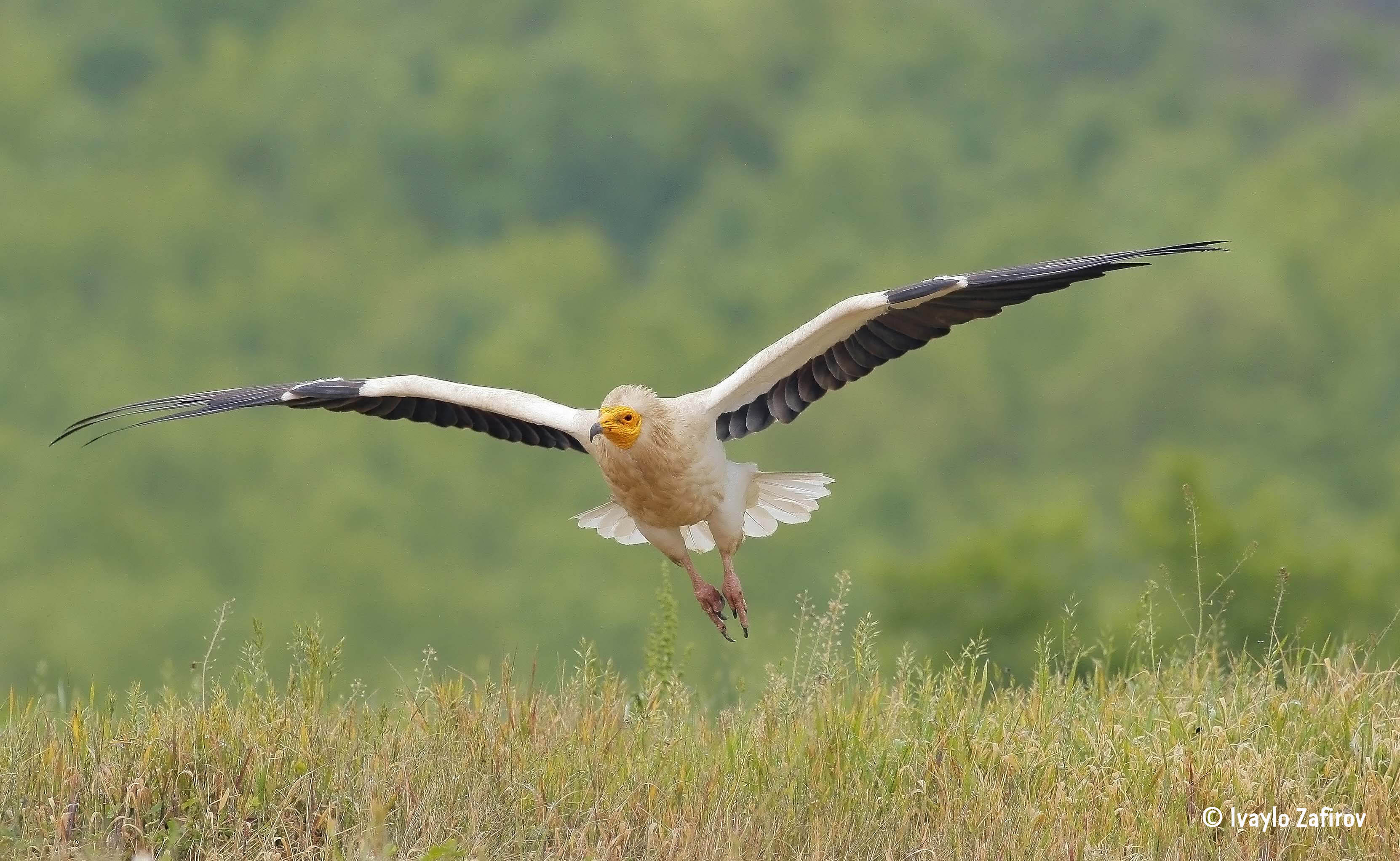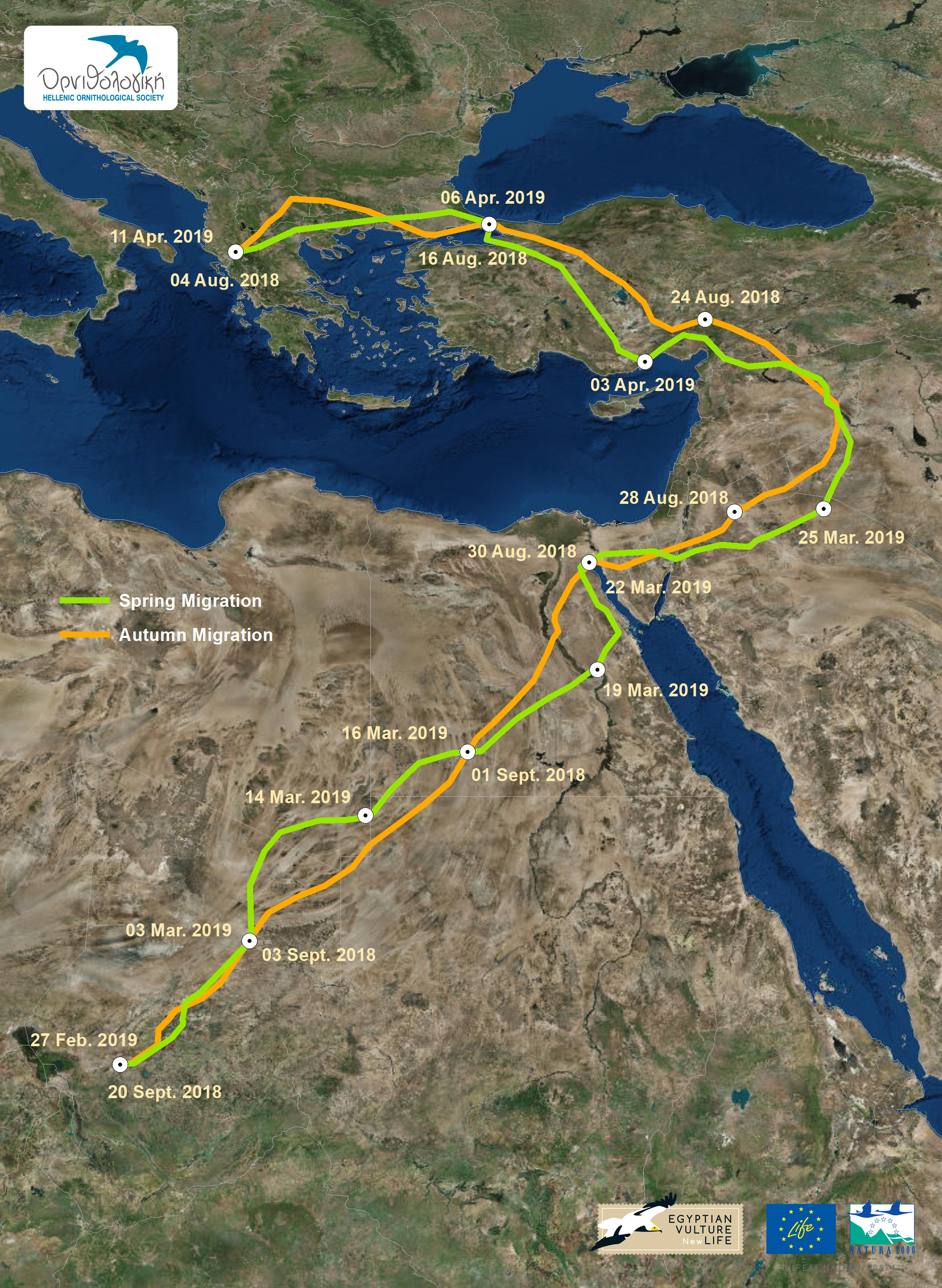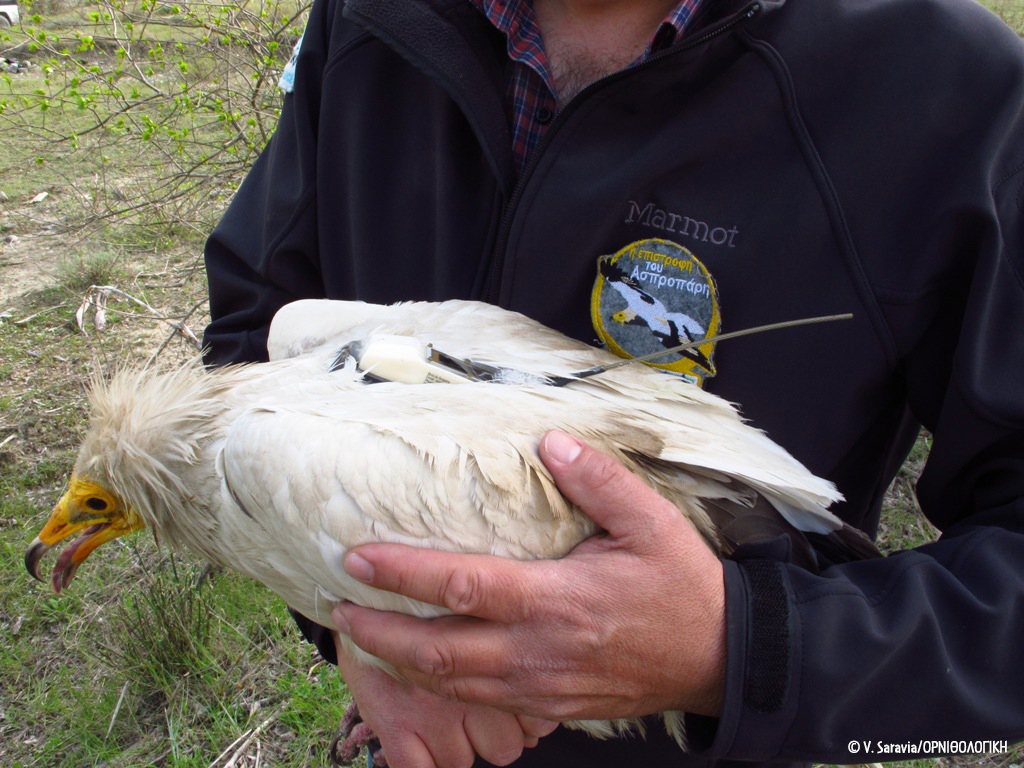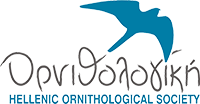
In ancient Egypt, the small vulture was considered the symbol of Isis, goddess of fertility, motherhood and magic. In Eastern Rhodope Mountains (Bulgaria) it was named ‘the white father’ - a symbol of purity and bravery. In Epirus (Greece) it is named "Cuckoo’s Horse" or "Horse - Cuckoo" and its arrival symbolizes the end of the winter and the beginning of the spring.
A few years ago, the view sight of an Egyptian vulture in the sky of Epirus was a frequent phenomenon. Today though, the population have has collapsed and Aoos – tagged with a satellite transmitter by the Hellenic Ornithological Society/ Birdlife Greece in April 2015 in Konitsa - and its mate are among the very few the Cuckoo’s horses remainingthat can be seen innowadays in Epirus. are just "Aoos", an adult Egyptian vulture, which was tagged with a satellite transmitter by the Hellenic Ornithological Society/ Birdlife Greece in April 2015 in Konitsa, and his mate.
A few years ago, the sight of an Egyptian vulture in the sky of Epirus was a frequent phenomenon. Today though the population has collapsed and Aoos – tagged with a satellite transmitter by the Hellenic Ornithological Society/ Birdlife Greece in April 2015 in Konitsa - and its mate are among the very few Cuckoo’s horses that can be seen nowadays in Epirus.

"Aoos", faithful to his annual meeting with us, arrived once more in Epirus, after traveling more than 6,000 km in about 43 days and having crossed eight countries: Chad, Libya, Egypt, Israel, Jordan, Syria, Turkey and Greece. After spending the winter in Chad, Central Africa, he started his spring migration towards his breeding territory located in the Greek-Albanian border, in the Aoos river valley going from Konitsa to Premeti.
Despite having successfully completed his journey back, avoiding different threats during migration and wintering, Aoos still has to face the most important threat for all vultures in the Balkans: poison baits! This illegal practice is the main reason for the rapid decline of the vultures’ populations in the Balkans. A poison bait placed in nature equals to a non-selective 'bomb' that can kill any scavenger, mammal or avian, that happens to pass by it, while constituting at the same time a serious threat to public health.

The last years HOS has been implementing actions to ensure the survival of Egyptian vulture in its critical breeding areas throughout the country, such as the wider region of Epirus. In Epirus operates a Network Against Wildlife Poisoning, composed of local land users (such as stockbreeders) and local authorities. The aim of this Network is to cooperate with all stakeholders for the immediate and effective management of poisoning incidents, the rapid removal of poison baits from the wild, and the change of attitudes concerning this heartless and extremely harmful practice against wildlife. In addition, feeding stations were constructed and are operated in Konitsa region so "Aoos" and his mate, as well as any other rare and protected raptor bird, can have access to safe food during the breeding season.
We wish "Aoos" and his mate luck this year so they can successfully raise their chick or chicks, the arrival of which will bring us hope for the future of this rare vulture.

The New LIFE Project “Urgent Actions to Strengthen the Balkan Population of the Egyptian Vulture and Secure Its Flyway” is implemented by institutions and organisations from 14 countries spanning the Balkans, Middle East and Africa aiming to reinforce the easternmost European Egyptian Vulture population by delivering urgent conservation measures to address major known threats at breeding grounds and also along the flyway. The actions of the Project are implemented with the contribution of the LIFE financial instrument of the European Union and the co-financing of the AG Leventis Foundation and the MAVA Foundation.


